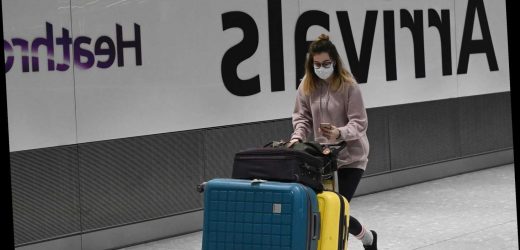BORIS JOHNSON has stopped all travel corridors with other countries to try to contain the spread of coronavirus.
Here is what you need to know about the new travel restrictions.
⚠️ Read our coronavirus live blog for the latest news & updates
What is a travel corridor?
Last year, the government introduced new rules which let Brits travel abroad and return to the UK without having to quarantine.
Countries on the list were exempt from the two-week quarantine in the UK, which has since been reduced to 10 days.
While the UK lockdown prevented any overseas travel, a number of countries remained on the travel corridor list.
This included the Maldives, Barbados, Cuba and Gibraltar, as well as some of the Greek islands.
Which countries are no longer on the travel corridor list?
The entire travel corridor scheme has been suspended, meaning there are no countries on it.
Boris Johnson said during the 5pm announcement: "To protect us against the risk of as yet unidentified new strains we will also close all travel corridors from 4am on Monday."
This means anyone arriving after this date will have to self-isolate for 10 days and can’t get a negative test to get out early.
The new rules are being enforced on Monday at 4am.
What countries were on the travel corridor list?
- Anguilla
- Antigua and Barbuda
- Aruba (will be removed from list 4am, Saturday 16 January)
- Australia
- Bahrain
- Barbados
- Bermuda
- Bhutan
- Bonaire/St Eustatius/Saba (will be removed from list 4am, Saturday 16 January)
- British Antarctic Territory
- British Indian Ocean Territory
- British Virgin Islands
- Brunei
- Cambodia
- Cayman Islands
- the Channel Islands
- Cuba
- Dominica
- Falkland Islands
- Faroe Islands
- Federated States of Micronesia
- Fiji
- Finland
- Gibraltar
- Greek islands: Corfu, Crete, Kos, Rhodes, Zakynthos
- Greenland
- Grenada
- Hong Kong
- Iceland
- Ireland
- the Isle of Man
- Japan
- Kiribati
- Laos
- Macao (Macau)
- Malaysia
- Maldives
- Mongolia
- Montserrat
- New Caledonia
- New Zealand
- Northern Mariana Islands
- Norway
- Pitcairn, Henderson, Ducie and Oeno Islands
- Qatar (will be removed from list 4am, Saturday 16 January)
- Rwanda
- Samoa
- Saudi Arabia
- Singapore
- Solomon Islands
- South Korea
- South Georgia and the South Sandwich Islands
- Sri Lanka
- St Barthélemy
- St Helena, Ascension and Tristan da Cunha
- St Kitts and Nevis
- St Lucia
- St Pierre and Miquelon
- St Vincent and the Grenadines
- Taiwan
- Thailand
- Timor-Leste
- Tonga
- Turks and Caicos Islands
- Vanuatu
- Vietnam
What are the other travel restrictions?
All UK arrivals will also have to have a negative coronavirus test, taken no more than 72 hours before arrival.
Airlines will be forced to check these, and anyone without one will not be able to board their flight.
Anyone caught breaking the rules faces fines up to £500.
The prime minister explained: "If you come to this country you must have proof of negative covid tests that you have taken in 72hrs before leaving and you must have filled in passenger locator form and airline will ask for proof of both.
"Upon arrival you must quarantine for 10 days not leaving for any reason, or take a test on day 5 and wait for proof of negative result."
The UK has already issued a number of flight bans due to the new mutant strains of coronavirus reported in different countries.
Enforced from today at 4am, all flights from Portugal and 15 South American countries were stopped due to a new strain in Brazil.
The new variant was first detected in Japan, and was there reported to the World Health Organisation.
It follows a travel ban from South Africa earlier this month due to another strain.
Many countries have also closed their borders to the UK after the new Kent strain was reported in December.
Source: Read Full Article




